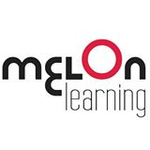Description

Pathwright

Melon LMS

SCL
Comprehensive Overview: Pathwright vs Melon LMS vs SCL
Pathwright
a) Primary Functions and Target Markets
Pathwright is an online learning platform designed to facilitate the creation, delivery, and management of educational content. It primarily caters to educators and organizations seeking a streamlined method to offer courses online. Users can build courses from scratch using Pathwright’s intuitive interface, which supports multimedia elements, interactive components, and various assessment types. Its collaborative features allow instructors and learners to engage effectively within the platform.
Target Markets:
- Educators and Trainers
- Schools and Universities
- Corporations seeking employee training solutions
- Nonprofits and community organizations
b) Market Share and User Base
While specific market share data for Pathwright is not extensively detailed, it is considered a niche product with a loyal following, particularly among educators who prefer customizable and straightforward interfaces. It competes with many other LMS platforms by offering a unique, design-driven approach.
c) Key Differentiating Factors
- Design and User Experience: Pathwright emphasizes a clean and intuitive interface, making it easy for users to create and navigate courses.
- Customizability: High level of customizability to fit specific branding and pedagogical needs.
- Path-based Learning: Focus on mapping the learning path with clear, structured learning experiences.
Melon LMS
a) Primary Functions and Target Markets
Melon LMS is a learning management system aimed at simplifying the training and development processes within organizations. It offers features for course management, tracking, reporting, and delivering online training effectively, often integrated with third-party tools for enhanced functionality.
Target Markets:
- Corporate training departments
- Educational institutions
- Government organizations
- Various industries requiring compliance training
b) Market Share and User Base
Melon LMS is known in the corporate training sector but its overall market share is moderate in comparison to large-scale players like Moodle or Blackboard. It has a stable user base, particularly in organizations looking for cost-effective and tailored training solutions.
c) Key Differentiating Factors
- Integration Capabilities: Offers seamless integration with various HR and enterprise systems.
- Scalability: Suitable for both small and large-scale training programs.
- Industry-specific Solutions: Provides tailored solutions for industries with unique training needs, such as healthcare and manufacturing.
SCL (Schoology)
a) Primary Functions and Target Markets
Schoology, now part of PowerSchool, is a robust LMS designed to manage educational learning environments, focusing heavily on the K-12 and higher education markets. It provides tools for course creation, student engagement, collaboration, and assessment.
Target Markets:
- K-12 schools
- Higher Education institutions
- Educational districts and organizations
b) Market Share and User Base
Schoology has a significant presence in the educational sector, especially within K-12 schools across the United States. It enjoys a substantial market share compared to other educational-focused LMS platforms, largely due to its comprehensive integration with other educational tools and PowerSchool’s existing base.
c) Key Differentiating Factors
- Robust Integrations: Extensive integrations with educational tools, Google Drive, and Microsoft Office 365.
- Community and Collaboration: Strong community features that promote collaboration among students, teachers, and parents.
- Comprehensive Assessment Tools: Extensive analytics and reporting tools tailored for educational outcomes.
Comparative Overview
- User Experience: Pathwright offers a unique design-oriented approach; Melon LMS focuses on seamless integration and scalability, while Schoology emphasizes extensive educational features and ease of collaboration.
- Target Market Specialization: Pathwright appeals to both individual educators and diverse organizations; Melon LMS focuses on corporate and industry-specific training; Schoology is primarily dedicated to schools and educational institutions.
- Market Presence: Schoology has a more considerable market share in education; Pathwright caters to a niche audience with personalized needs; Melon LMS is more prevalent in corporate settings.
- Technological Integration: Melon LMS excels in enterprise integration; Schoology offers strong educational tool integrations, and Pathwright provides customizable paths with multimedia and interactive features.
Each platform offers unique features to suit its target market, with Schoology being the leader in the education sector, Melon LMS prominent within corporate environments, and Pathwright distinguished by its user-friendly design and path-based learning approach.
Contact Info

Year founded :
2012
+1 864-990-2065
Not Available
United States
http://www.linkedin.com/company/pathwright

Year founded :
Not Available
Not Available
Not Available
Not Available
Not Available

Year founded :
2018
Not Available
Not Available
Egypt
Not Available
Feature Similarity Breakdown: Pathwright, Melon LMS, SCL
When comparing Pathwright, Melon LMS, and SCL, it's important to analyze both their shared features and unique offerings. Here's a breakdown based on the information available as of my last update:
a) Common Core Features
-
Course Creation and Management: All three platforms offer robust tools for creating and managing online courses. This includes the ability to structure course content, organize modules, and upload various types of media.
-
Assessment and Quizzes: These LMS platforms provide functionalities to create quizzes, tests, and assignments to assess learners’ progress and understanding.
-
Progress Tracking and Reporting: Users can track learner progress and generate reports to monitor performance across the platforms.
-
Mobile Accessibility: Each system is mobile-friendly, allowing learners to access course materials on various devices.
-
User Management: Administrators can manage users, assign roles, and oversee enrollments on all three platforms.
-
Integration Capabilities: Common integration options include third-party tools and applications to enhance functionality, such as video conferencing apps (e.g., Zoom), Google Workspace, and various other productivity tools.
b) User Interface Comparison
-
Pathwright: Known for its intuitive and visually appealing UI, Pathwright offers drag-and-drop course creation and a clean, modern layout that emphasizes ease of use. The focus is often on visual engagement, making it accessible even to users with limited technical expertise.
-
Melon LMS: Offers a straightforward, less flashy but functional interface. While it’s efficient for performing tasks, it may not be as visually engaging as Pathwright. The design is typically focused on efficiency and clarity over aesthetics.
-
SCL: Features a simple and user-friendly interface, designed to be intuitive for both administrators and learners. It emphasizes navigability and ease of access but might lack advanced customization compared to Pathwright.
c) Unique Features
-
Pathwright: One distinctive feature is its emphasis on “Learning Paths,” which allows users to map out entire learning journeys. Pathwright also often emphasizes collaborative learning, offering tools for teachers to engage with students interactively.
-
Melon LMS: Often highlights its robust corporate training features, which include advanced certification and tracking tools. It’s particularly strong in areas like SCORM compliance and business intelligence, making it appealing for enterprise environments.
-
SCL: Unique for its strong focus on streamlined student lifecycle management. SCL often offers more comprehensive solutions for educational institutions needing to manage everything from enrollment to alumni relations, integrating academic and administrative processes more seamlessly.
Overall, while all three platforms provide basic LMS functionalities, their differences primarily lie in design philosophy, ease of use, and specialized features that cater to different user needs and market segments.
Features

Interactive Learning Experience
Customization and Branding
Integration and Support
Course Creation and Management
Analytics and Reporting

Comprehensive Course Management
Support and Resources
User-Friendly Interface
Performance Tracking
Engagement and Collaboration

User Management
Project Tracking
Communication Tools
Best Fit Use Cases: Pathwright, Melon LMS, SCL
To evaluate the best fit use cases for Pathwright, Melon LMS, and SCL, it's important to understand their key features, strengths, and how they align with different business requirements. Here’s a breakdown based on their general characteristics:
a) Pathwright:
Best Fit Use Cases:
- Types of Businesses or Projects:
- Educational Institutions: Pathwright is particularly well-suited for schools, colleges, and other educational institutions looking to offer interactive online courses. Its focus on user engagement and social learning makes it ideal for traditional education settings.
- Small to Medium-Sized Enterprises (SMEs): Especially those emphasizing employee training and development with a need for an intuitive, easy-to-set-up platform.
- Content Creators and Coaches: Individuals or small teams involved in creating educational content, coaching, or professional development may find Pathwright’s design and usability ideal for their needs.
Features:
- Provides a user-friendly platform for course creation and management.
- Emphasis on design and aesthetics, which can benefit creative sectors.
- Offers interactive elements like quizzes and discussions to enhance learning engagement.
b) Melon LMS:
Best Fit Use Cases:
- Corporate Training:
- Medium to Large Enterprises: Melon LMS is designed to support robust training programs within larger organizations due to its focus on scalability and integration capabilities.
- Compliance Training: Companies with strict compliance training needs can benefit from Melon LMS’s tracking and reporting features.
Features:
- Strong emphasis on compliance and certification management, which is vital for industries like healthcare and finance.
- Supports integrations with other enterprise systems to streamline processes.
- Offers detailed analytics and reporting features that are crucial for performance tracking and compliance.
c) SCL (Smart Content Library):
Best Fit Use Cases:
- Content Management and Delivery:
- Publishing Entities and Large-Scale Content Creators: Companies that focus extensively on content creation and distribution might benefit from the advanced content management capabilities of SCL.
- Knowledge Management: Organizations that need to manage extensive libraries of knowledge and deliver content to various stakeholders efficiently.
Features:
- Offers advanced content organization and categorization features.
- Focuses on delivering content efficiently across different platforms and audiences.
- Suitable for industries like digital publishing, media, and tech companies with extensive internal content libraries.
d) Industry Verticals and Company Sizes:
- Pathwright is generally more suited for smaller to medium-sized educational projects but can also cater to niche markets within larger companies focusing on design-centric learning experiences.
- Melon LMS typically fits larger corporate settings needing structured and regulated training environments, such as finance, healthcare, and manufacturing, where compliance is crucial.
- SCL excels in environments where content creation, management, and dissemination are of paramount importance, like publishing and media industries, as well as large corporations with significant content libraries.
Each platform has specific strengths and is best chosen based on the particular needs of the business or project, whether that is educational engagement, corporate training compliance, or content management and delivery.
Pricing

Pricing Not Available

Pricing Not Available

Pricing Not Available
Metrics History
Metrics History
Comparing teamSize across companies
Conclusion & Final Verdict: Pathwright vs Melon LMS vs SCL
When evaluating learning management systems like Pathwright, Melon LMS, and SCL, several factors need to be considered, such as usability, feature set, pricing, customer support, and scalability. Here's a conclusion with a detailed analysis:
a) Best Overall Value
Pathwright emerges as the best overall value for most users. It is known for its intuitive design, robust feature set, and seamless user experience. It offers flexibility and creativity in course design, making it ideal for educators and organizations that value customization and an engaging learning environment. The pricing is reasonable, considering the functionality and the user-friendly interface.
b) Pros and Cons
Pathwright
-
Pros:
- Intuitive and visually engaging platform.
- Highly customizable course design.
- Integrates well with various third-party tools.
- Strong community support and documentation.
-
Cons:
- Advanced features may require a learning curve.
- Might be over-featured for very basic needs.
Melon LMS
-
Pros:
- Affordable with competitive pricing, offering value for small to medium businesses.
- User-friendly with straightforward navigation.
- Suitable for corporate training environments due to its focus on compliance and certifications.
-
Cons:
- Limited design customization; may not meet the needs of creative educational courses.
- May lack some advanced features found in more expansive LMS options.
SCL (Synchronous Collaborative Learning)
-
Pros:
- Strong focus on collaborative features, which is beneficial for group-based learning and real-time interaction.
- Offers tools primarily designed for synchronous and blended learning environments.
-
Cons:
- Can be complex for users who need simple course delivery.
- Might not be ideal for asynchronous course setups or where individual learning paths are required.
c) Recommendations
For users deciding between these LMS options:
-
Pathwright is recommended for educators and organizations prioritizing course customization and an immersive learning experience. If user engagement and design flexibility are crucial, Pathwright is the way to go.
-
Melon LMS should be considered by businesses and institutions focused on corporate training, especially those requiring compliance tracking and certifications. Its affordability and user-friendly approach make it suitable for organizations with tight budgets.
-
SCL is best for educational environments or businesses emphasizing collaboration and interactive learning experiences. If your focus is on real-time interaction and group projects, SCL provides features tailored to these needs.
Ultimately, the choice among Pathwright, Melon LMS, and SCL depends on the specific requirements, budget, and the learning style or corporate environment your organization aims to support. Assessing your primary objectives and aligning them with the platform's strengths will guide you in selecting the most appropriate LMS for your needs.